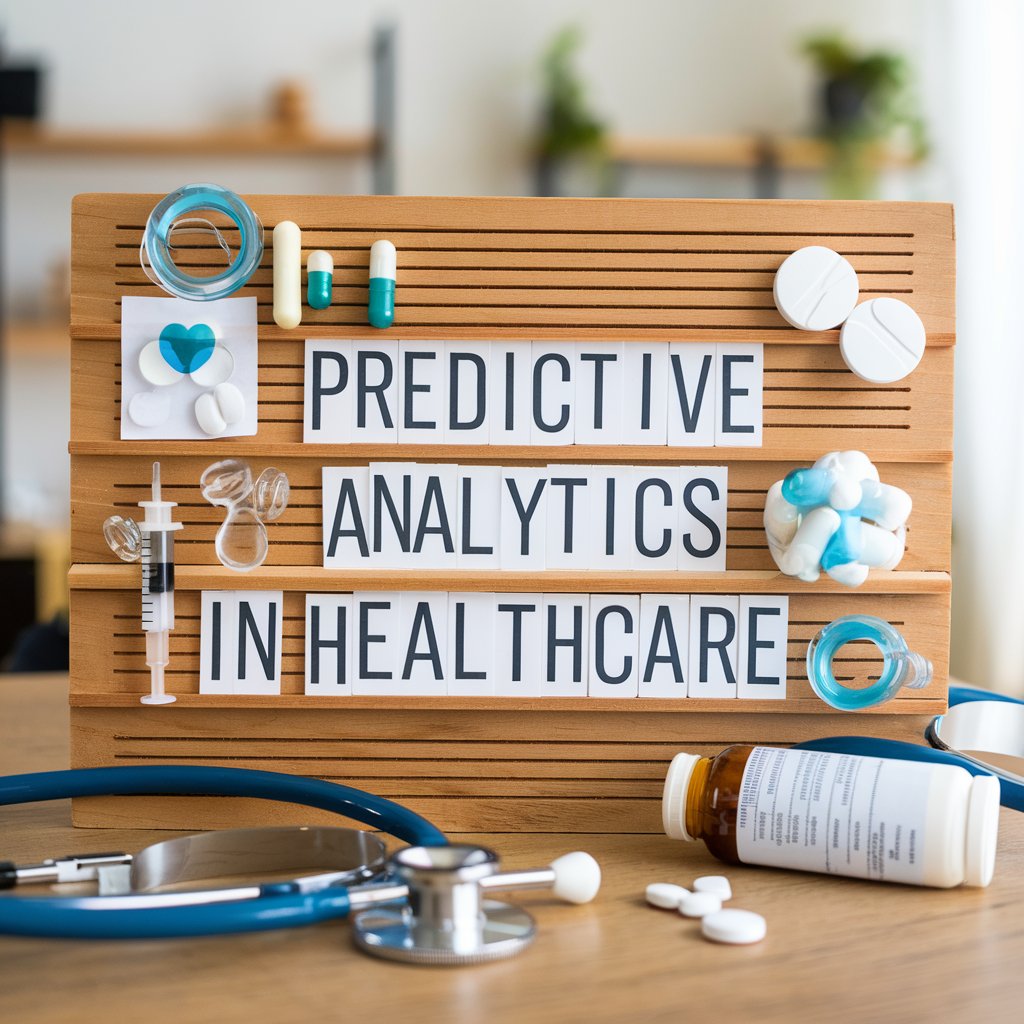Predictive Analytics changes how healthcare service providers optimize operations and patient care. With the help of data-backed insights, predictive analytics supports healthcare experts in the identification of health troubles and enhancement of patient outcomes. It improves the chances of better outcomes through smart evaluation of real-time data. The predictive models also support the detection of early signs of diseases and deliver personalized healthcare solutions.
Predictive analytics in healthcare marks the shift from reactive to proactive health support and streamlines the efficiency of hospitals. As the technology continues to evolve, it promises a functional and forward-looking healthcare system that benefits health providers and administrators. This blog highlights the role of predictive analytics to boost patient outcomes and hospital efficiency.
Multiple Ways Predictive Analytics Impacts the Healthcare Industry
Predictive analytics indicates the use of machine learning, statistical algorithms, and data mining for the evaluation of healthcare data to make accurate forecasts. In the healthcare industry, predictive analytics analyzes data from EHRs (Electronic Health Records), images, tools, and other sources to uncover patterns and predict health outcomes. These insights support the healthcare provider to deal with health concerns timely and reduce the chances of complications. Let us now explore ways predictive analytics improves patient outcomes and hospital efficiency.
Predictive Analytics for Enhancement of Patient Outcomes
Early Detection and Diagnosis—Predictive analytics supports the early detection of health troubles with swift evaluation of patient data. The machine learning models analyze the patient’s records to find the risks that are likely to develop the disease, even before the identification of clinical symptoms. This ensures timely interventions for accurate healthcare solutions that prevent diseases to cause serious damage. This improves the chances of health recovery from serious health concerns.
Personalized Treatment Plans – It strengthens the healthcare organizations to deliver personalized solutions through evaluation of patient profile & data, plus medical history, lifestyle, and other factors. Predictive analytics forecasts how patients respond to specific treatment, and support healthcare professionals to avoid the unnecessary choices. This supports the accuracy of healthcare plans and optimizes the recovery process.
Reduces Emergency Visits – Emergency visits are tricky & costly and thus impacts the patient’s recovery. Predictive analytics prepares the mindset of patients with the possible treatment plans and reduces the chances of readmissions. This ensures the identification of patients with high risks to return to the hospital for treatment. The predictive analytics evaluates factors like age, various conditions, and social health determinants to pinpoint patients with relevant support post-discharge.
Prevention of Hospital-Acquired Infections – One of the major concerns of the healthcare industry are HAIs (Hospital-Acquired Infections), that result in longer hospital stays. This further results in higher healthcare costs and in some cases, loss of life. Predictive Analytics assists with prevention of HAIs through data evaluation of hospital practices and prior infection reports of patients with bigger risk.
Predictive Analytics for Involvement of Hospital Efficiency
Optimization of Healthcare Staff – The common issues faced by the hospital and healthcare organizations are staffing shortage and overstaffing. Predictive analytics supports the forecast of staffing requirements with evaluation of patterns like addition prices, seasonal trends, and respective operations. Hospitals use predictive models to expect the rise in patients at time of healthcare hazard or allocation of staff at peak hours.
Hospitals can maintain the right amount of staff in the healthcare facility, with identification of staff requirements, and prevention of burnout among health healthcare experts. This results in better patient care and satisfaction.
Resource Management and Inventory Optimization – Predictive analytics supports the management of hospital resources with an accurate forecast of medical supply demands like equipment and medicines. With the prediction of resources for the near future, healthcare facilities can prevent both overstocking and stockouts. This assists healthcare facilities to save costs through optimization of resources and inventory. Additionally, effective California medical billing practices ensure that healthcare providers can manage their financial resources more efficiently, leading to improved cash flow and the ability to reinvest in patient care and inventory management systems. It helps to determine how much blood, PPE, or specific medications will be needed for a specific situation, based on historical demand and current trends.
Such resource management is vital for critical care units, where the availability of resources can impact the overall patient care. Hospitals that employ predictive analytics in their inventory management to support the swift supply of critical resources, to boost the operational efficiency and patient care.
Reduction of Patient Wait Times – No more requirement to wait in long queues for doctor or patient care with predictive analytics. The longer wait times enhance the frustration for patients and reduce patient satisfaction. With predictive analytics in healthcare, service providers can schedule appointments, surgeries, and other treatments efficiently.
Predictive analytics assess the severity of cases in the emergency rooms and support the identification of high-risk cases. Integration with specialized urgent care EMR systems can further streamline patient intake, track treatments efficiently, and ensure accurate recordkeeping across visits. Such models are meant to track bed occupancy rates and ensure swift discharge of patients. This ensures the availability of beds and supports the proper flow of patients.
Appropriate Financial Plans and Cost Reduction – Financial management is always the critical factor to enhance the operational efficiency in the healthcare industry, as they always operate on limited budgets. Predictive analytics can forecast the operational costs of hospitals and care providers. This includes evaluation of prices to hire healthcare experts, inventory, and maintenance, based on analysis of latest trends. Hospitals can allocate their resources better with proper financial plans and thus avoid unnecessary expenses.
Additionally, it supports the identification of potential financial risks, like patients who fail to pay for their healthcare treatment or procedures that are likely to incur high costs. Such steps assist healthcare providers to implement preventive measures, like financial management or adjustment of pricing models, that results in accurate financial responsibility.
Summing Up!
Predictive analytics in healthcare improves overall patient care across hospitals and various medical organizations. With this, patient care becomes more proactive and personalized, to provide accurate treatment to patients. From early detection to better use of resources, predictive analytics has a profound impact on hospital operations. As the technology continues to evolve, it holds the possibility to improve healthcare systems with data-driven insights. Predictive analytics supports the prevention of high-risk diseases with timely medical solutions for all patients.






